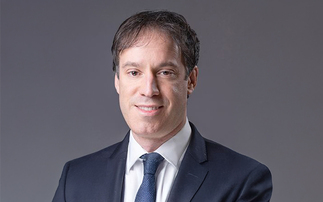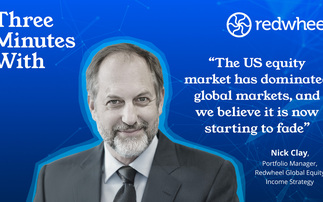We asked Wellington Management's Campe Goodman how he built Wellington's new impact bond fund.
To explain his investment process, Goodman describes what happened after he first set out the fund's criteria to Wellington's broader credit teams. "I soon got an email from an analyst who had identified a really interesting high-yield issuer: a company in Brazil that provided clean water and better sanitation," Goodman explains.
The team checked the firm against the fund's key criteria - including whether the impact of an investment could be measured in terms of a specific key performance indicator - and added the firm to the fund's universe of possible investments. That's the first hurdle for an issuer.
Then when Goodman began selecting high-yield issuers for his portfolio, he spotted the water firm's "great risk/reward and investment characteristics". So he double checked with the credit analyst and ran the idea past one of Wellington's experienced emerging markets portfolio managers, before sizing and sourcing the investment.
Creative controversy
Everyone supports the drive for clean water, but some other impact areas are more controversial. "We'd like to help fund the transition of ‘dirty' industries like metals and mining towards more environmentally-friendly practices because we think that could be incredibly impactful," says Goodman. But his experience with energy utilities highlights a problem.
"A lot of utilities are issuing green bonds for their wind power," he says, "but only some are actively shutting down thermal activities and moving towards wind and solar." Impact investors must be selective. "We want to buy the bonds of firms making a real transition," he says.
In other industries, he says, it can be even more of a challenge to try to make sure "we aren't providing any capital to negative impact activities at all." The answer may be future innovation in the form of ‘transition bonds' structured to meet a high bar of transparency and sustainability goals.1
Source:
Risks
CAPITAL: All investors should consider the risks that may impact their capital, before investing. The value of your investment may become worth more or less than at the time of the original investment. The Fund may experience high volatility from time to time.
CONCENTRATION: Concentration of investments within securities, sectors or industries, or geographical regions may impact performance.
CREDIT: The value of a bond may decline, or the issuer/guarantor may fail to meet payment obligations. Typically, lower-rated bonds carry a greater degree of credit risk than higher-rated bonds.
CURRENCY: The value of the Fund may be affected by changes in currency exchange rates. Unhedged currency risk may subject the Fund to significant volatility.
INTEREST RATES: The value of bonds tends to decline as interest rates rise. The change in value is greater for longer term than shorter term bonds.
BELOW INVESTMENT-GRADE: Lower rated or unrated securities may have a significantly greater risk of default than investment grade securities, can be more volatile, less liquid, and involve higher transaction costs.
EMERGING MARKETS: Emerging markets may be subject to custodial and political risks, and volatility. Investment in foreign currency entails exchange risks.
Important information
This material and its contents are current at the time of writing and may not be reproduced or distributed in whole or in part, for any purpose, without the express written consent of Wellington Management.
This material is not intended to constitute investment advice or an offer to sell, or the solicitation of an offer to purchase, shares or other securities. Investing involves risk and an investment may lose value. Investors should always obtain and read an up-to-date investment services description or prospectus before deciding whether to appoint an investment manager or to invest in a fund.
Any views expressed are those of the author(s), are based on available information and are subject to change without notice. Individual portfolio management teams may hold different views and may make different investment decisions for different clients.
Except where registered for public sale, Fund units are offered only to qualified or professional investors on a basis that it does not require the registration of the Fund for public sale. The Fund only accepts professional clients or investment through financial intermediaries.
Please refer to the latest Key Investor Information Document (KIID), the Fund offering documents for further risk factors, pre-investment disclosures, and the latest annual report (and semi-annual report) before investing.
KIIDs are available in the official languages of each country in which the Fund is registered for sale (please visit www.wellington. com/ KIIDs). UCITS Funds are authorised and regulated as a UCITS scheme by the Commission de Surveillance du Secteur Financier- Wellington Management Funds (Luxembourg). This material is provided by Wellington Management International Limited (WMIL), a firm authorised and regulated by the Financial Conduct Authority (FCA) in the UK.











